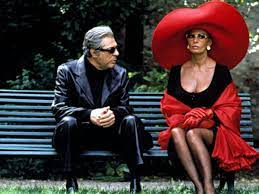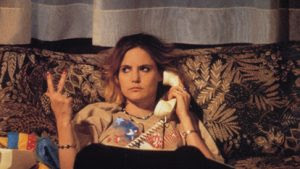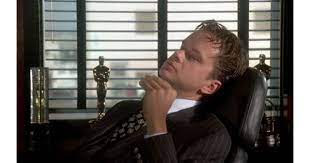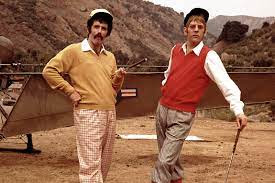 |
| Robert Altman (1983) |
Editor's Note: This is the third of a three-part interview recorded by Tom Ryan with Robert Altman shortly before the film-maker's death. The first part can be found if you click here. The second is here. Previous posts in this series can be found if you click on the names Hanif Kureishi & Roger Michell Ken Loach Pt 1 Ken Loach Pt2 Colin Firth (Part One) Colin Firth (Part Two) Lawrence Kasdan (Part One), Lawrence Kasdan (Part Two) Costa-Gavras Jonathan Demme (Part One) Jonathan Demme (Part Two) Click on the names to read the earlier pieces.
*********************************************
The legend has you as “Hollywood maverick Robert Altman” or “Hollywood outsider Robert Altman”. Given how widely revered you are by people inside the industry, do you see yourself that way?
I don’t… No, not really. I go on from one project to another. I’m never sitting there and waiting and stopping and thinking about these things. I’m working on two projects right now that are going to go – both of ’em – in the next six months. And I don’t think about anything else. When Prairie came out in America – and we did real well with that – I think it grossed somewhere over $20 million. And I was just thrilled by that. Other pictures I’ve made… I’ve just read something about Prèt-à-Porter that said it was one of the worst pictures ever made. That makes me feel bad, but what makes me feel good is that I did those pictures.
 |
| Marcello Mastroianni, Sophia Loren, Prèt-à-Porter |
I read an interview recently where you said that you’re “scared shitless” about bad reviews. I guess I understand that, but isn’t it also true that reviews will tell you more about who’s writing them?
I’m not “scared shitless” about bad reviews. I hate ’em. I get my share of them but it doesn’t really change anything.
You’ve done a lot of work as a producer on films directed by other people, especially Alan Rudolph. What’s been the nature of your involvement, say, on Rudolph’s films?
None. I might go visit the set once. But I won’t have any artistic input into it. I don’t talk to him about it. It’s his picture and all I want to do is enable him to do it.
You said that you’re working on two projects at the moment. I understand that one of them is Hands on a Hard Body. Are you able to say anything about that at this stage?
Well, I’m hoping to be shooting this very soon.
Have you put a cast together yet?
Well, it’s a big cast. A lot of people. I don’t want to say who they are at the moment. They’re gonna have to be available at the time I’m making the picture. So somebody will say, ‘Yeah, I want to be in it.’ And then they’re not available because I can’t be flexible.
 |
| Jennifer Jason Leigh, Short Cuts |
Geraldine Pieroni, editor on Short Cuts, says on the feature on the DVD release (Luck, Trust & Ketchup), that you have “a dark view of the world”? Is that how you see it?
I don’t think so. I don’t know what my view of the world is, but I don’t think it’s dark. If you ask me, it’s probably her view. She committed suicide a year ago.
Oh, I’m sorry to hear that. I didn’t know.
Do you see any difference then, between the Hollywood you depict in The Player, and by implication maybe in films such as Nashville, and the world of politics which you present in the ‘Tanner’ series?
Well, aren’t they all the same? Isn’t it all our struggles, our positioning? Where do I sit in the room?
I guess, but it seems much more public and exposed when it’s Hollywood and when it’s politics.
That’s because so many people write about it. It’s so public, with publicists calling up and giving stories to the press all the time.
Do you ever feel when you’re making a film that it’s your version of “payback time”?
[Chuckles] I don’t know what you mean by that.
 |
| Tim Robbins, The Player |
Well, it has been said, for example, that The Player was your way of laying Hollywood bare, of actually exposing the process.
That was such a soft-gloved treatment of Hollywood that it verges on the supernatural. It was really, really kid-gloved. They were treated very well, the community.
As a community perhaps, but there are individual characters in The Player who are shown to be corrupt and totally compromised.
Oh, you bet. And there’s more of them at that level of business… Anyway, it’s rampant. People play and pay for that publicity. “I don’t care what you say about me, just spell my name right.” It’s all so silly.
In Short Cuts, Marian (Julianne Moore) talks about her art and about “seeing and the responsibility that comes with it”. Separating the line from the character’s pretensions for a moment, what do you see as the responsibility that comes with “seeing”?
That comes with what?
That comes with “seeing”.
The responsibility that comes with seeing?
Yes.
With sight?
Yes, with the seeing that’s part of the understanding and insight of being an artist and the responsibility that arguably comes attached to that.
I don’t know. Is that something that her character says?
It is.
Well, it’s probably something that she created, that character. And that character was pretty silly.
I’m just looking at that in relation to your work and what you see as your responsibilities as an artist.
Well, my responsibilities are to myself and to whatever it is that I do. I’m showing the films as my view, my truth about something, whether I use a degree of exaggeration… So it’s to myself. Ultimately other people decide. If nobody likes it, I’ll become extinct, quickly. But if a few people like it… and pay attention to it…
As you’ve probably gathered, I could talk forever about which of your films are most important to me, and which bits of those films. But I have to ask which of them are now most important to you?
Well, Tom, do you have any children?
Yes.
Which one is most important to you?
I can answer that ’cause I’ve only got one.
Oh, well. You can, but I can’t because I’ve got about 40. And they’re really all important to me for different reasons. None of the reasons has anything to do with their success or failure, the perception of that. But they all have their own fingerprints… The bad ones did such silly things that they became good, although there are a lot of silly things that didn’t work. But basically who cares? If everything is praised as a hit, the artist is in serious trouble. And I try to stay out of trouble.
Will you forgive me if I don’t believe you?
[Laughs] Yeah, I’ll forgive you for that.
What do you do to get away from it all?
I spend all my time trying to get in it all. I don’t want to get away from it.
Do you read a lot?
Not so much any more.
Well, what about your musical tastes?
My musical tastes are very eclectic.
Are you a fan of country music?
I like country music.
 |
| Steve Buscemi, Kansas City |
And your liking for jazz seems to be very clear from films like Kansas City. I presume your upbringing in Kansas imbedded that in you?
My upbringing in Missouri? We have great local pride in being from Missouri. During the Civil War, Missouri sold supplies to both sides… [chuckling]
It’s interesting that you said you’re a fan of country music, because I get a sense from both Nashville and A Prairie Home Companion that you’re more ambivalent about it than that.
I don’t know. How do you mean “ambivalent”?
Well…
My taste for it? Is that what you mean?
… the tacky emotional side of country music. For example the song that Meryl Streep and Lily Tomlin sing about their mother is both affecting and awfully sentimental. The worst kind of country music, I would have thought.
That’s a statement in itself. I would say that this is one of my top country songs. I mean, it’s like in Nashville: “For the Sake of the Children” and some of those songs are outrageous.
Yes.
And they’re supposed to be. I mean, they are what they are. I’m not trying to say that this is great music, although in some cases it is.
A song that I personally responded to in Nashville is “I’m Easy”, the Keith Carradine one, which comes immediately to mind whenever I think of Nashville. Which he wrote himself…
He did. In fact, he wrote it for another picture. But they didn’t use it… a picture about a train [n.b. this was probably Robert Aldrich’s Emperor of the North Pole, made a couple of years before Nashville, TR].
I understand there was to be a sequel to Short Cuts?
Oh, there’s always… There was to be a sequel to Nashville. Those things are always thought of, but they’re always bad ideas.
Are they?
When a thing is done it should have its own time and it shouldn’t be…
 |
| Elliott Gould Donald Sutherland, M*A*S*H* |
I ask you with some trepidation, but how did you feel about the television series of M*A*S*H* then?
I despised it. The fact of making it a series! And the enemy was the Asian family guy and everybody else were the good guys! And what they said, the platitudes they delivered in their American war speeches! When we made M*A*S*H*, there was a point to it. I was more upset then than I am now.
Do you go to the movies often these days?
Not much.
Are there any contemporary filmmakers whose work interests you?
Well, Anderson of course. He’s in the middle of doing a film right now. I don’t talk to him when he’s shooting, but it sounds to me like it’s pretty good.
Anybody else?
Well, I’m a big Alan Rudolph fan. I guess he’s not a young filmmaker.
No, but he, like you, qualifies as a contemporary filmmaker because he’s still working. Although he hasn’t made films for a while.
No, he hasn’t. He’s had a hard time because the kind of films he makes aren’t the kind of films they buy now.
Have you seen or do you know of the film Jindabyne?
No, I don’t.
It’s an Australian adaptation of the Raymond Carver story, ‘So Much Water So Close To Home’.
Oh, I remember we had to give them the rights for that. What did they call it?
It’s called Jindabyne, which is the name of a township near a snowfield resort.
Have you seen the film?
Yes, I have.
Is it good?
I think it’s very good and I think it does what seems to me to be there in the Carver story, that is tell us more between the lines than with the lines.
Well, that’s good to hear.
It stars Gabriel Byrne and Laura Linney.
I’ll see it.
I’m sure it’ll finish up in New York at some point.
One more question. Do you plan to continue working in the theatre whenever you have the opportunity?
Sure, whenever it occurs to me. I love it.
When you are working in the theatre, do you take the same kind of approach with actors and collaborations and free movement that you do in your films?
Well, it’s a little more… The frame is a little tighter in the theatre and opera. The opera I love.
Yes. I understand you did an opera version of The Wedding.
Yeah, it was terrific.
And that was in Chicago?
It’ll show up in the next three or four years in one of these… There’s a lot of people in it, which is what makes it difficult.
Well I’d certainly love to see it and I’m very much looking forward to your future projects.
Well… if you get to see them.
No comments:
Post a Comment
Note: only a member of this blog may post a comment.